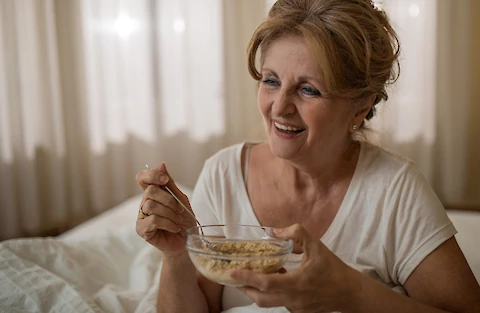
As we age, managing our health becomes increasingly crucial, especially when it comes to conditions such as type 2 diabetes. Nutrition plays a significant role in this management, serving as a powerful tool with which seniors can obtain better control over their health. With effective dietary choices, many seniors find that they can manage type 2 diabetes more effectively.
Understanding Type 2 Diabetes
Type 2 diabetes is a chronic condition affecting the way the body metabolizes sugar, an essential source of energy. It's often associated with older age but can affect anyone. In seniors, diet proves especially important in managing the condition and ensuring stable blood sugar levels. By understanding how diet impacts blood sugar, seniors can better tailor their eating habits to support their health.
Practical Dietary Tips for Seniors with Type 2 Diabetes
Seniors should always consult with their care providers before making dietary changes. However, there are several ways seniors can improve their health by managing their diets.
One crucial aspect of managing blood sugar levels is maintaining a consistent eating routine. Seniors with type 2 diabetes should aim for regular meals and snacks throughout the day. It decreases the risk of blood sugar spikes and crashes, aiding overall stability.
Choosing whole, unprocessed foods is another critical step. Foods such as fresh fruits, vegetables, lean meats, and whole grains have a lower glycemic index, meaning they impact blood sugar less than processed foods can.
The balance of carbohydrates, proteins, and fats in each meal also plays a vital role. While all three provide energy, carbohydrates have the most direct impact on blood sugar. Combining carbs with proteins and fats can slow the body's absorption of sugar, preventing spikes in blood sugar levels.
Finally, reducing the intake of both sugar and sodium is essential. While it may seem obvious to limit sugar, many don't realize that sodium can also impact blood sugar regulation.
Easy-to-Prepare Food Suggestions for Seniors
Making dietary changes can feel overwhelming, but it doesn't have to mean complex meals and recipes. Breakfast might be oatmeal with a sprinkle of cinnamon, whole grain toast with avocado, or eggs with a side of fruit. For lunch and dinner, grilled chicken with steamed vegetables and a small portion of brown rice make for a balanced, low-glycemic meal.
Healthy snacks are also important in maintaining stable blood sugar. Good options include a handful of nuts, a piece of fruit, or a small serving of yogurt. Hydration is another factor not to be overlooked. Seniors should aim for water or unsweetened teas throughout the day.
How Dietary Choices Can Improve Blood Sugar Levels and Overall Health
A balanced diet doesn't just aid in managing blood sugar levels. It contributes to overall health as well. Regular, balanced meals and snacks can help support a healthy weight, boost energy levels, and decrease the risk of heart disease.
Moreover, when combined with physical activity, a healthy diet can further support blood sugar management and overall well-being. Even simple activities like daily walks can have a positive impact.
Managing type 2 diabetes as a senior might seem daunting, but with the appropriate knowledge and tools, it becomes an achievable task. Emphasizing consistency, balance, and whole foods can go a long way in managing blood sugar levels and improving overall health.
Help for Seniors with Type 2 Diabetes and Other Health Challenges
For those residing in Paterson, Butler, Sussex, Passaic County, and Ringwood, Senior Helpers Fairfield is here to support you in your journey. Our specialized team can provide expert advice, guidance, and support for seniors dealing with a range of health conditions. Contact us today to learn more.